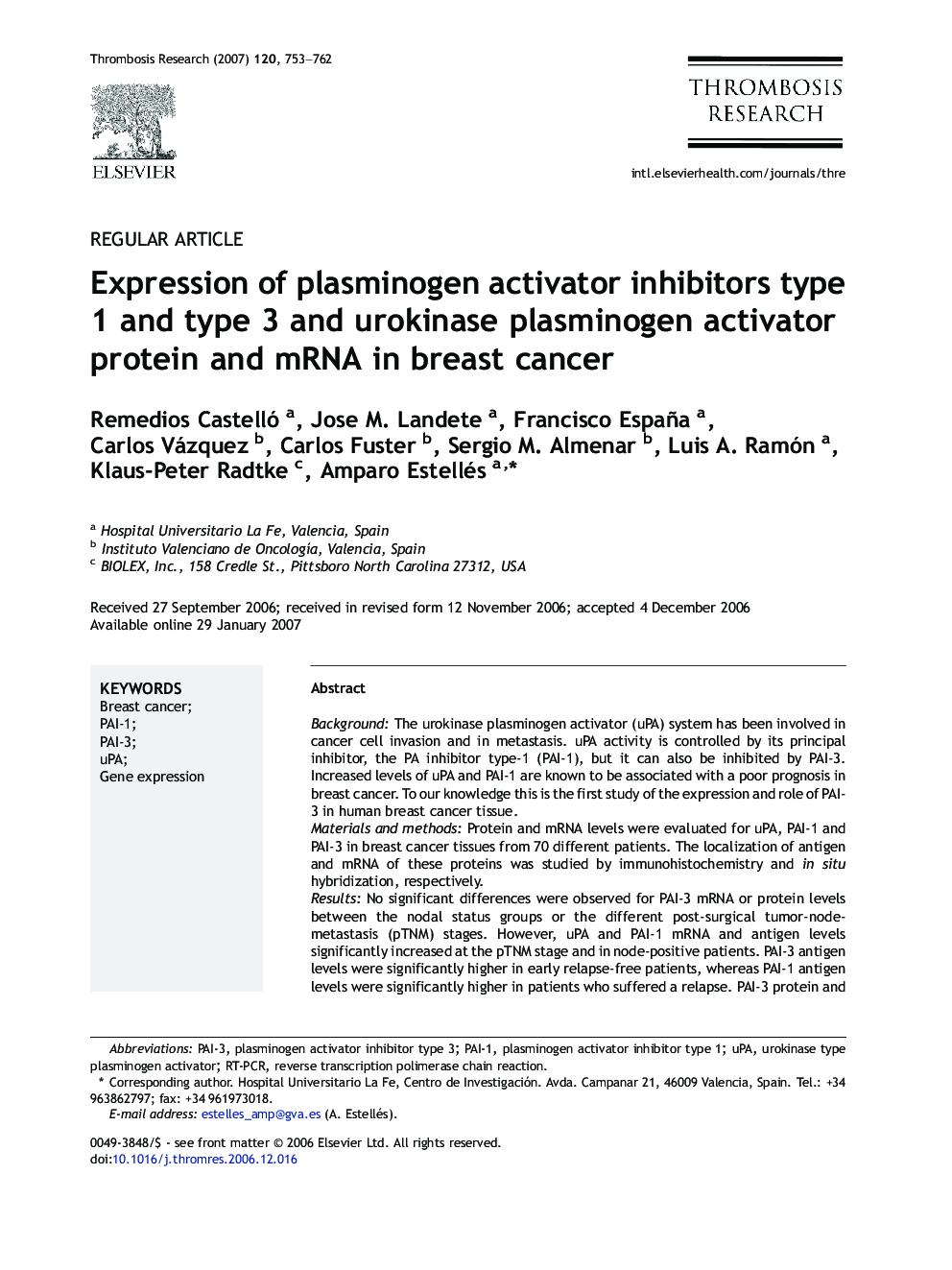| Article ID | Journal | Published Year | Pages | File Type |
|---|---|---|---|---|
| 3029951 | Thrombosis Research | 2007 | 10 Pages |
BackgroundThe urokinase plasminogen activator (uPA) system has been involved in cancer cell invasion and in metastasis. uPA activity is controlled by its principal inhibitor, the PA inhibitor type-1 (PAI-1), but it can also be inhibited by PAI-3. Increased levels of uPA and PAI-1 are known to be associated with a poor prognosis in breast cancer. To our knowledge this is the first study of the expression and role of PAI-3 in human breast cancer tissue.Materials and methodsProtein and mRNA levels were evaluated for uPA, PAI-1 and PAI-3 in breast cancer tissues from 70 different patients. The localization of antigen and mRNA of these proteins was studied by immunohistochemistry and in situ hybridization, respectively.ResultsNo significant differences were observed for PAI-3 mRNA or protein levels between the nodal status groups or the different post-surgical tumor-node-metastasis (pTNM) stages. However, uPA and PAI-1 mRNA and antigen levels significantly increased at the pTNM stage and in node-positive patients. PAI-3 antigen levels were significantly higher in early relapse-free patients, whereas PAI-1 antigen levels were significantly higher in patients who suffered a relapse. PAI-3 protein and mRNA were localized in stromal cells. PAI-1 and uPA protein were detected in cancer, endothelial and stromal cells and their mRNA mainly in stromal cells.ConclusionsOur results indicate that PAI-3 is expressed in human breast cancer tissues, and that elevated levels of PAI-3 could be a positive prognostic factor in this disease. A potential mechanism for the contribution of PAI-3 to a positive long-term outcome may involve suppression of tumor invasion through protease inhibition in stroma.
